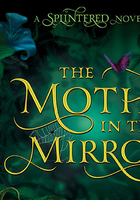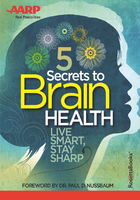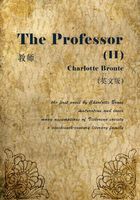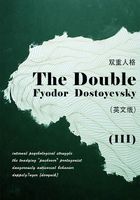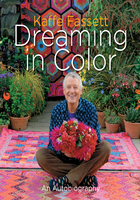But how did it come to this? How did I go from wanting to write about my own-and America's-hypocrisy regarding marijuana, to transporting a trunkful of it across the country? Where did this story begin, and what in God's name happened along the way?
I know where it began for me. In fact, I remember the precise moment when I decided to start doing this weed thing full-time. The scene: a parking lot in Indianapolis, winter of 1994. I was sitting shotgun in a purple Isuzu Rodeo. The master of ceremonies was Bill Budd, a teammate on my junior hockey team. After the loneliest, most confounding year of my life as a college freshman, I had decided to take a year off to figure shit out. One thing that needed figuring was whether to keep on being a jock-hence this questionable junior hockey stint, complete with an eighty-game, two hundred–practice season, a tribe of lovable puckheads for teammates, and a coach with the disposition of Heinrich Himmler.
Bill wasn't a complete puckhead. He was this tall, pale-skinned Coloradan creature with a robust imagination and a singular way of expressing himself. "You're not gonna believe how sickening this beat is." He was pulling a CD from its case, shaking his head. "These guys are fucking lords."
High praise. Bill slid the CD in the slot and pressed play. A delicious, laid-back hip-hop beat kicked in, with a surreal mélange of voices filling up the background. He packed a glass pipe with stinky, crystal-laden buds and passed it to me. I took a pull, exhaled a blast of smoke, and watched it curl up the windshield and roll back on itself like a wave. It crashed into me, and I broke into a coughing fit. Snapping out of that, I popped into a new reality. The Fourth Dimension. This stuff worked fast. The first round of lyrics seemed to come from far away. I pictured a guy with an Afro and baggy pants on the dusty surface of a distant planet, rapping into a headset: "Trapped in the cockpit, at forty thousand feet/The sky is the limit, but we supersede…"[6]
The second verse was sung by two guys at once, streaming into both ears from opposite speakers. I had somehow acquired the ability to focus on one instrument or voice without losing track of the rest of the song-like a TV's picture-in-picture function, only for hearing. Voices cascaded downward from everywhere at once, like choreographed waterfalls. The sound of someone choking echoed and became its own instrument. Beats wove together like some otherworldly tapestry, interspersed with childishly funny rhymes. It was a song about getting high, performed by artists who were (clearly) high when they recorded it, intended for a high audience, which sounded, somehow, like the sonic equivalent of what it feels like to be high.
Sure, it's a mundane moment. Two guys sitting in a car, smoking pot and listening to music. But that's the whole point. In that brief, banal instant, my perspective shifted from small-minded anxiety to pure transcendence. Looking back, I was at an impressionable stage-no longer content to spend my mind-life thinking about sports, worried about the future, bored and directionless. Introduce into that scenario a drug that has the ability to melt away earthly cares and replace them with total focus on, say, a single drum snare in the backbeat of a song. Or one fragmented but highly amusing thought. It was an escape, but the escape was inward. Not drowning out the world, like I imagine the effects of heroin to be, but fully embracing this one on fresh, new terms.
Turns out I'm not alone in having been seduced by weed through music-that's how America fell for the drug, too. Marijuana first seeped into the continental United States around 1900, as the cargo of Mexican peasants who migrated north over the Rio Grande into Texas border towns like Laredo and El Paso.
But the real spread of marijuana started in New Orleans. At the turn of the twentieth century, cultures collided in New Orleans's Storyville red light district, an early crucible of Southern diversity. In Storyville, black and Cajun "ladies of pleasure" mingled with white gentlemen. Dock laborers and field hands rubbed elbows with itinerant musicians in saloons. It was through this unique intermingling of cultures that marijuana cigarettes first reached the lips of artists playing America's newest contribution to the world of music: jazz.
These jazz musicians-including Jelly Roll Morton and a young Louis Armstrong-were primarily black, played exclusively in brothels and honky-tonks, and were no strangers to the artistic use of drugs. Alcohol blunted the senses, and opiates made musicians nod off, but marijuana-also called muggles, muta, gage, and Mary Warner-enhanced aural focus while softening the self-awareness that can inhibit an improvisational art like jazz. While jamming with Louis Armstrong, the great composer Hoagy Carmichael claimed marijuana elevated his playing to a new level, which felt almost like an out-of-body experience: "I had never heard the tune before, but full of smoke, I somehow couldn't miss a note of it. The muggles had carried me into another world. I was floating high around the room in a whirlpool of jazz. The rest of the night I have no memory of."
In 1917, the federal government shut down Storyville as part of a nationwide crackdown on red light districts. New Orleans banned marijuana in 1923, and the state of Louisiana followed suit in 1927. But it was too late-the magic weed's spell was cast. Jazz musicians traveled north up the Mississippi, joining the flight of black and migrant workers heading to cities like St. Louis, Chicago, and Kansas City. Jazz music traveled with them and became the new music of America, and eventually, the world. Their suitcases bore not just trumpets and horns, but marijuana joints as well.
It seems bizarre in retrospect to ban a weed that grew naturally on the roadsides of America, a domestic agricultural crop that had been used to make hemp twine, fabric, and the paper on which early drafts of the Declaration of Independence were printed. But because it was associated with foreigners and fringe musicians-Mexicans and blacks, respectively-it was only a matter of time before The Man would clamp down on weed. The precedent was already in place, as Chinese immigrants who poured in to service the California Gold Rush had already been demonized for introducing opium to the American populace.
In 1930, President Herbert Hoover appointed Harry J. Anslinger the first commissioner of the newly formed Federal Bureau of Narcotics (FBN). Anslinger, America's Darth Vader of Dope, was a horrifying-looking creature with an unnaturally large, square head and beady eyes. He likely developed his fixation on cannabis more out of pragmatism than genuine concern. Two years after his appointment, the FBN faced heavy budget cuts due to the onset of the Great Depression. Anslinger, who had initially been dismissive of a federal ban on marijuana, now decided to pin his hopes of a budget increase on exposing the drug as a burgeoning public menace. In his previous position as assistant commissioner of the U.S. Treasury Department's (alcohol) Prohibition Unit, he had learned that public outrage toward an enemy of the people was the best means of diverting money into a bureau's coffers.
Anslinger unleashed a relentlessly fear-based and racist publicity campaign against the "killer weed." He planted dozens of stories in the press about murders and rapes committed under the influence of marijuana, almost always by Mexican immigrants and blacks who had gotten high and transmogrified into "bestial demoniacs, filled with a mad lust to kill." The victims of these crimes were invariably white, and pictures of their mutilated bodies often accompanied the articles. Anslinger also spearheaded the production of several anti-weed movies, like Marihuana, released in 1935, with the unintentionally alluring tagline: Weird orgies! Wild parties! Unleashed passions! The most famous of these films was Reefer Madness (1936), a story of three teenagers whose lives are ruined by weed, which was partly financed by a church group and a distillery that was concerned about a loss of profits if marijuana grew more popular.
In 1937, after two years of secret planning, Anslinger's crony from the Treasury Department, chief counsel Herman Oliphant, drafted an anti-marijuana bill. In the preliminary Senate hearings, Dr. James Munch, a pharmacist from Temple University, claimed he had tried the drug (for scientific reasons, of course), and it had turned him into a bat. The only notable dissenting voice was that of Robert Woodward, legislative counsel to the American Medical Association (AMA). Woodward slammed Anslinger for using the word marijuana instead of hemp in the bill in order to dupe industrial hemp producers, and he questioned the legitimacy of the (mainly hearsay) evidence. He was dismissed outright by the committee chairman. When Anslinger got his chance at the podium, he didn't hesitate to drop lovely little xenophobic nuggets like this: "There are 100,000 total marijuana smokers in the U.S., and most of them are Negroes, Hispanics, Filipinos and entertainers. Their Satanic music, jazz and swing, results from marijuana usage. This marijuana causes white women to seek sexual relations with Negroes, entertainers and any others."
The bill, known as the Marihuana Tax Act of 1937, reached the floor of Congress late on Friday afternoon, when most congressmen had already left for the weekend. No vote was taken. Instead, a clerk simply counted the number of congressmen who walked by him. The bill passed and was signed into law by President Roosevelt on August 2, 1937, becoming the first federal legislation to control marijuana. The law didn't technically prohibit cannabis. But it raised a levy so steep-$100 per ounce every time the drug changed hands, in a time when a new Ford cost $200-that it effectively banned the legal sale and purchase of marijuana.
* * *
And yet, against all odds, seventy-five years after the passage of the Marihuana Tax Act, and after millions of marijuana arrests during the combined drug wars of presidents Nixon, Ford, Reagan, Bush, Clinton, Bush, and even Obama, weed somehow seems to be winning. More than a third of the U.S. population has admitted they've tried it, and a third of the states have legalized it for medical purposes. Our current president admits he not only smoked pot but inhaled it, and megamoguls like Ted Turner, Mike Bloomberg, and Steve Jobs (R.I.P.) have all enthusiastically hit the hookah.
The media now treats marijuana as commonplace. Smash-hit movies show characters smoking pot as if they were taking a sip of Cabernet,[7] and Showtime has based an entire TV series, Weeds, on the premise that marijuana is an integral part of American suburban life. Polls consistently show that over 70 percent of Americans support legalized medical marijuana, and a 2012 Rasmussen Reports poll found that 56 percent of Americans would support legalizing and regulating marijuana in a similar manner to alcohol and tobacco. In November of 2012, Colorado and Washington became the first states to legalize the recreational use of marijuana. If that doesn't qualify as a tipping point, how about the fact that weed is the country's top cash crop. According to a 2006 study, cannabis is valued at $35.8 billion per year, effectively bitch-slapping the combined value of two traditional American crops-corn ($23.3 billion) and wheat ($7.5 billion).
American politicians, who have been relatively mute on the subject since the Carter administration, are finally starting to have some balls regarding the red-eyed elephant in the room. In November of 2011, the governors of Washington and Rhode Island, Christine Gregoire and Lincoln Chafee, petitioned the DEA to allow doctors nationwide to legally prescribe medical marijuana. "Poll after poll shows an overwhelming majority of Americans now see medical marijuana as legitimate," said Gregoire, of Washington, where dispensaries had been distributing medical marijuana for thirteen years. Even ultra right-wing evangelical leader and former presidential candidate Pat Robertson has (inexplicably) come out in favor of legalizing marijuana. In March of 2012, Robertson said, "I really believe we should treat marijuana the way we treat beverage alcohol. I've never used marijuana and I don't intend to, but it's just one of those things that I think: this war on drugs just hasn't succeeded."
Despite all this apparent progress, the legalization movement continues to lurch forward in fits and starts. After having legalized medical marijuana in January of 2010, New Jersey officials are nearing their third year of delaying access to patients there. In August of 2011, a Michigan appeals court banned patient-to-patient marijuana sales, jeopardizing nearly five hundred dispensaries that had opened since 63 percent of voters had approved medicinal cannabis three years earlier. Some of the most vocal pro-marijuana politicians have either left office or been marginalized. While in office former California Governator Arnold Schwarzenegger, who was filmed smoking a joint in the 1977 documentary Pumping Iron, was an outspoken proponent of taxing marijuana for recreational use. But he got caught schtupping the maid, so we won't hear from him for a while. Congressman Barney Frank has been a longtime supporter, co-sponsoring a 2008 bill attempting to curb federal penalties for marijuana possession. But he's retiring in 2013. Other than that you've got former New Mexico governor Gary Johnson and Texas congressman Ron Paul, both of whom admirably won't shut up about the subject, but aren't moving the ball much closer to the end zone.
Despite being the first American commander-in-chief to openly embrace his past pot use, President Obama has not yet proven to be the weed messiah many advocates had hoped. At the 2009 virtual town hall meeting, the most popular questions involved legalization; Obama dismissed them with a flip joke. At a 2011 town hall meeting in Minnesota, the President became uncharacteristically tongue-tied when asked if he could at least legalize medical marijuana. "Well, you know, a lot of states are making decisions about medical marijuana. As a controlled substance, the issue then is, you know, is it being prescribed by a doctor, as opposed to, you know… well… I'll… I'll… I'll… I'll leave it at that." Leave it at… what? We can only hope that, while sneaking out for one of his clandestine cigarette breaks in the White House Rose Garden, Obama will have an epiphany and remember how much he loved toking up back in his high school and college days.[8]
President Obama is caught up in a decades-old trend for politicians who are perceived to be liberal about marijuana: They take a hard-on-drugs stance to silence accusations of running a loose ship. Bill Clinton took so much flack for not inhaling that he became one of the most ruthless drug-warrior presidents in American history. New York City Mayor Michael Bloomberg, who has not been shy about having enjoyed marijuana personally, has overseen the arrest of more than four hundred thousand people for simple possession during his three terms in office. After a critical article by the Village Voice and mild public outrage, New York City Police Commissioner Ray Kelly released a memo in September of 2011 scolding his officers for using sneaky stop-and-frisk tactics. (This usually involves asking people to empty their pockets without telling them they can refuse, resulting in the coerced offense of "public display of marijuana.") Still, when the 2011 data was released, New York remained the marijuana arrest capital of the world with more than fifty thousand possession arrests, the second highest in the city's history.
American prisons now hold in excess of six million inmates, more than were stuck in Stalin's gulag prison system at its height. Since 1980, we have gone from having roughly equal percentages of prisoners as that of our European and Asian counterparts, to having seven to ten times more inmates on average today. What has changed in the last thirty years? The war on drugs-period. Drug convictions rose tenfold over 16 years, from 15 inmates per 100,000 adults in 1980 to 148 in 1996. Today, over half of America's federal inmates today are in prison on drug convictions.
Considering that polls show majority support for cannabis legalization, why isn't American law enforcement adapting to reflect the will of its citizens? We now arrest one American every thirty-eight seconds on marijuana charges. And we do so at a staggering cost in law-enforcement expenses, lost tax revenues, and profits for criminals. In 2007 alone, marijuana laws cost American taxpayers an estimated $42 billion in law enforcement costs and lost tax revenues. We could be using that money and jail real estate to imprison violent offenders. We could pay for more positive approaches to drugs, like substance abuse centers. And we might even be a step closer to resolving America's bottomless pit of debt.
Though the concept seemed like pure fantasy just a decade ago, I now believe the legalization of marijuana in the United States is imminent. It's only a matter of time, of an aging generation-who maintain an outdated stigma toward this plant-to die off, and of a few bold politicians to step up to the plate. I say this not because America is shifting into some leftist Fox-News nightmare of a nationwide commune, or in the other direction, into a radical libertarian Ron Paul–style version of laissez-faire government. America will legalize marijuana for the same reason the Dutch have created their quasi-legalized coffee shop culture: because cannabis is a weed that can be grown anywhere and thus cannot be contained. America will legalize marijuana for the same reason it has changed many of its other failed policies after years of hammering away at them: because it's practical. Or more to the point, we will legalize marijuana for the same reason I drove marijuana across the country: because it's profitable.
The idealist in me believes that legalization will be a good thing. On that historic day, I'll smoke a joint to celebrate no longer having to sneak around like a child, and the fact that marijuana growers will no longer be jailed for what is essentially gardening. Mexican drug cartel profits will shrink, and cash will flow into the coffers of American businesses no less legitimate than liquor stores. Ancillary businesses will develop-from marijuana tourism to the production of cannabis edibles and hemp fabric-that will help fill the cracks that our faltering economy has exposed. Millions of nonviolent marijuana prisoners will be released and gain access to jobs that utilize the very expertise for which they were imprisoned. And maybe some of the investment bankers and real estate hustlers who helped torpedo the world into economic recession will get high and become a little less greedy, or quit their jobs to explore the world with childlike wonder, or just generally learn to chill the fuck out.
But the realist in me knows that legalization won't solve many of the dilemmas about America's-or my own-relationship to weed. I'll have the exact same amount of access to the drug-which is to say, as much as I can afford, which is almost always more than enough. It won't change the reasons why pot smokers like me use the drug, or its effects on us afterward. Hundreds of thousands of my fellow Americans will still be getting high to blunt psychological pain, ease anxiety, or attempt to fill a spiritual void. Potheads will continue to cough and wheeze and lose shit and procrastinate. And though some weed virgins will enjoy the drug for the first time, many more will cling to their fears about the plant and opt for the familiar numbing intoxication of alcohol.
Just as Prohibition did little to stem the flow of alcohol into Americans' gullets, the repeal of Prohibition has done little to resolve the problems that alcohol abuse bestows upon our collective psyche. Which is why, when I think about the future of marijuana in this country, and in my own life, it is with a devil on one shoulder, and an angel on the other.

